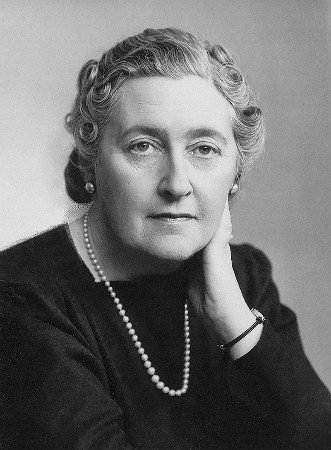Amin Maalouf was born in Beirut on February 25, 1949. His father was Ruchdi Maalouf, a Catholic Arab journalist, and his mother Odette was an Egyptian of Turkish origin. Maalouf was the second of the family’s four children, three of whom were girls.
“My grandmother was born in Istanbul. My mother used to say she spoke Turkish. My father was born in 1915, so he was born as an Ottoman subject. I am the first generation in my family who is not Ottoman.”
His great-great-uncle was a translator who brought Moliere into Arabic, and his family roots include other literary figures such as David Maalouf, a novelist in Australia, or Fawzi Maalouf, known for his poetry in Brazil.

After completing his primary and secondary education in French Jesuit schools in Beirut, he studied sociology and economics at the French University in Beirut. Like his father, he was interested in journalism. At the age of 22, he started working as a writer and manager at An-Nahar, the daily newspaper founded by his father. This job gave him the opportunity to travel to many countries such as India, Bangladesh, Somalia, Kenya, Ethiopia, Yemen and Algeria. In his writings, he often focused on the wars and conflicts in these countries and tried to find solutions. It was also during these years that he met Indira Gandhi, witnessed the revolution in Ethiopia and wrote about the fall of Saigon in 1975.
In 1971, Amin married Andreé, a teacher at an institute for deaf children; their three sons were born in Lebanon. When the Lebanese Civil War broke out, Maalouf refused to fight and fled to the mountain village where his parents were born. Maalouf says he has never forgotten that day, when he saw the bodies of around 20 people in the street after a clash in front of their house, and spent the night in the basement with his pregnant wife and young son. The shock he experiences makes him realize that he, too, could have been a murderer if he had been armed that day. “Ethnic tension can create killers for everyone,” the author says, and is forced to flee his homeland.
Although he found it difficult to accept the idea of emigrating from Lebanon, in 1976 he set out for France, a country whose language and culture he knew well through his schooling, just as his grandfather and uncles had emigrated to America, Egypt, Australia and even Cuba, and has been living in Paris ever since.
Maalouf first made his name with a history book. He says that he did not expect his book, The Crusades through the Eyes of the Arabs, to attract so much attention when it was published in 1983, seven years after he settled in France. Written in French, it was soon translated into other languages. The success of the book is that it focuses on how the Crusades, which have so far been told from the Western perspective, were seen and experienced by Arabs. The entire content of the book consists of the testimonies of Arab historians and chroniclers.
“What Muslim does not want to be able to say to his Creator on the Day of Judgment: “I fought for Jerusalem” or, better still, “I was martyred for Jerusalem”? Saladin was once told by a soothsayer that if he entered the Holy City he would lose one eye, to which he replied: “I am ready to lose both eyes to capture it.” (

In an interview, Maalouf stated that the first novel he wrote in his own style was Leo of Africa (1986), because he was encouraged to write his first work, The Crusades through Arab Eyes, by a friend who was a publisher. Maalouf said that his first novel, Leo of Africa, would determine whether he would continue in the writing profession or even return to his country:
“Fortunately for me, this novel was a huge success from the summer of ’86, when it might have gone unnoticed. It even topped the bestseller list in France for a while. We were saved… This book was perhaps the most dangerous turn of my life, as much as my departure from Lebanon.” He received the Franco-Arab Friendship Prize for this work.
“I don’t pray to God to save me from bad luck, I pray to God to save me from despair in such cases. Believe that if God lets go of one hand, He will take hold of the other.” (Leo the African)

His 1988 novel Samarkand was also translated into many languages, and in 1993 he won the Goncourt Prize for his book The Rock of Tanios. Winning this prize, which was awarded to Proust in 1919, was a source of great joy for Maalouf, but as he himself put it, it also put a heavy burden on his shoulders as a writer.
“I am not one of those who do not know any other prayer except the terror of the Day of Judgment. How do I pray? I gaze at the rose, I count the stars, I am fascinated by the creation, I am amazed by the awakened or satisfied feelings of the human being, the most beautiful creation of my Lord, and by the knowledge of it, the hungry mind, the love, the hungry heart.” (Samarkand)
“Temporary happiness? All happiness is like that; whether it lasts a week or thirty years, when the last day comes, you cry the same tears and say that you would be willing to go through hell to experience the same thing the next day.” (The Rock of Tanios)
 In his works, the author, who, as a sociologist, traveled to various Eastern countries and observed the social structures there and blended these observations with fiction in his works, is seen to be oriented towards the problems of the East and the solution of these problems. Recognized in Europe as the spokesperson of the Near East, Maalouf’s successive works, in which historical events are told like a fairy tale and reality and unreality are blended, are published.
In his works, the author, who, as a sociologist, traveled to various Eastern countries and observed the social structures there and blended these observations with fiction in his works, is seen to be oriented towards the problems of the East and the solution of these problems. Recognized in Europe as the spokesperson of the Near East, Maalouf’s successive works, in which historical events are told like a fairy tale and reality and unreality are blended, are published.
Maalouf writes in different genres, including novels, historical books, autobiographical works, librettos and essays. In 2010, Maalouf was awarded the Prince des Asturies (Prince Asturias) prize for all his works, and in 2011 he was admitted to the French Academy. To list his important works:
The Crusades through Arab Eyes
Samarkand
Leo the African
Gardens of Light
First Century After Beatrice
Tanios Kayas
Ports of the East
Deadly Identities
The Hundredth Name – “Baldassare’s Journey”
The Beginning of Paths
A Cracked World
The Story of Seat 29
Love at a Distance
Adriana Mat
In his works, Maalouf is generally in search of a place, a world where cultural differences are tolerated, legalized and even recognized, in short, where the different can live together in harmony. In his works, he underlines that the problems between people stem from the mentality that does not accept the other as they are. If we summarize Maalouf’s attitude while writing his works, in other words, the way he writes and conveys them: The majority of his works, which he characterizes as impure fiction, are based on proven historical events.
Seeing history, first of all, as an endless source of characters, events, parables and epochs to be discovered, the novelist selects a series of anecdotal and encyclopedic elements from history, which he blends with elements that emerge from his imagination. As he himself affirms, history is an inevitable tool for creation, not because it has any pedagogical value, but because it contains the social memory of humanity.
Amin Maalouf displays a humanist attitude by emphasizing in his works that everything in the world should be done for human beings, for humanity. The humanist aspect of the author, who desires the embrace of all humanity regardless of race, language, religion and class, is revealed both between the lines and through the mouths of the protagonists in his novels. In his book Gardens of Light, he will write the following lines: “For a long time I didn’t know who I belonged to, and when I found out, I didn’t care. You know I know neither race nor class.”
This master of literature, whose novels all begin with sympathy, has also been called Mr. East, Mr. One Thousand and One Nights of Modern Times, Mr. Scheherazade, Mr. Tolerance.
“I, on the other hand, felt like a guest everywhere, often welcomed with open arms, sometimes just tolerated, but nowhere did I feel like a resident with one hundred percent rights… I was born not in a country but on a planet. Okay, of course I was born in a country, in a city, in a neighborhood, in a family, in a maternity clinic, in a bed… But the only important thing for me and for all human beings is to have been born! Into the world! To be born means to be born in this or that country, in this or that house.” (Far from the East)

In his books, Maalouf organizes long tours from Central Asia to Mesopotamia, then to Europe and Africa. His itinerary is mainly based on the Mediterranean coast. By exercising his imagination, he takes the reader to the mysterious world of the unknown, based on historical events. It is this richness of culture and historical knowledge in his works that makes them so widely read.
If one were to make a list of the places visited and mentioned in Maalouf’s novels, no place in the Mediterranean basin would be left out. Mesopotamia, Italy, the center of the Renaissance, some European countries such as England and France, and Iran would be added to the list. In his novels, Maalouf places the places he chooses as the backdrop of his fictional settings and makes his protagonists experience adventures in these places.
Maalouf, who works on the eastern motif in almost all of his books, uses striking events in the history of the east in his novels. In fact, all his books are like a story of exile and expatriation. In order to add more color to his tales, Maalouf also finds places with interesting founding stories. He tells about places that appeal to people, places that have been known to exist for thousands of years, places whose traces are visible but not well known. He relates legends and historical events about these places. By exercising his imagination, he takes the reader to the mysterious world of the unknown based on historical events. In fairy tales, which are the weakest points of all societies, the events do not take place in a single place. Like Maalouf’s characters, fairy tale heroes travel to countless places while having exciting adventures.

Maalouf’s complex and rich personal history can also be traced in his works. In Maalouf’s novels, which are based on real historical information and places, a certain part of the action takes place on Ottoman lands. In his historical novels, Maalouf’s fictionalization of places that smell of history makes his books appealing even to those who do not enjoy reading history.
The binding force in his works is the integration of history, which is intertwined with reality and the past, and love, which contains emotions. Such romance novels make readers love history and unite those who read history with love. Its vivid and fluent narrative also turns into an informative meaning.
Maalouf also contributed librettos (opera lyrics) to the world of music. Three of his librettos were published in book form.





